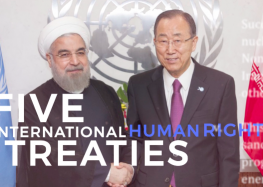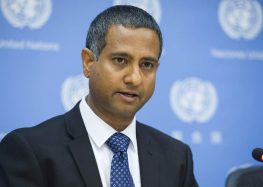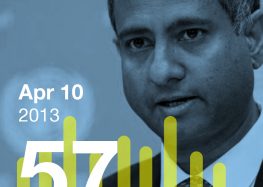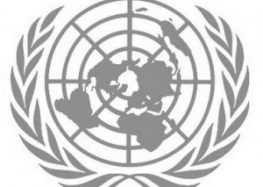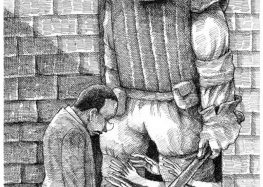UN Secretary General Laments Iran’s Non-Cooperation with Human Rights Mechanisms
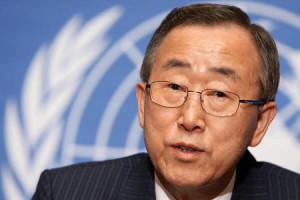
- In his interim report, the Secretary General explains, “Special Procedures mandate holders sent a total of 17 communications to the Islamic Republic of Iran in 2011, out of which the Iranian authorities have responded to only one.”
In his interim report on the situation of human rights in the Islamic Republic of Iran presented 21 March 2012, United Nations Secretary General Ban Ki-moon regretted the country’s continued lack of cooperation with UN mechanisms, especially with the Special Rapporteur on the situation of human rights in Iran.
Read the report here (PDF)
The report notes that the Secretary General “regrets… that despite requests for a country visit, the Special Rapporteur on the situation of human rights in Iran has not yet been admitted to the country. The Secretary-General encourages the Government to fully cooperate in the fulfillment of the Special Rapporteur’s mandate by inviting him to the country.”
“The Secretary General is concerned about the low rate of reply to the large number of communications sent by the Special Procedures alleging very serious human rights violations, and renews his call upon the government to strengthen collaboration with the international human rights mechanisms,” added UN Deputy High Commissioner for Human Rights Kyung-wha Kang in her presentation of the report to the Human Rights Council.
In his interim report, the Secretary General explains, “Special Procedures mandate holders sent a total of 17 communications to the Islamic Republic of Iran in 2011, out of which the Iranian authorities have responded to only one.”
The report further notes, “There have been no visits by Special Procedures since 2005, despite a standing invitation issued to all thematic Special Procedures mandate holders in 2002.”
Deputy High Commissioner Kang indicated that the report highlights a few “noteworthy developments,” including Iran’s renewed engagement with some international human rights mechanisms. The report refers to “Iran’s first report to the Human Rights Committee in 18 years.”
These developments have transpired as a result of sustained international pressure, including the creation of the Special Mandate on the situation of human rights in the Islamic Republic of Iran last year. However, the Secretary General’s report notes that Iran has been largely non-compliant with UN Special Mandates and other mechanisms.
For example, authorities rejected requests by a working-level delegation from the Office of the High Commissioner for Human Rights, made before and during their visit to Tehran, “for meetings with opposition figures under house arrest, access to other prisoners of concern, and a meeting with a range of independent civil society representatives.” As a result, “it was agreed that a visit by the High Commissioner [herself] would require more in depth preparation and outreach to different actors in Iran.”
Additionally, while “The Secretary-General welcomes Iran’s intention to invite two Special Procedures mandates for a visit in 2012,” he noted that to date “these visits have not been scheduled” and regretted Iran’s failure to extend such an invitation to the Special Rapporteur on the situation of human rights in Iran.
In all, the report underscores the point that the Iranian government’s attempts to seem cooperative with UN human rights mechanism either lacked substance or were used to avoid cooperation with the country-specific Rapporteur whose mandate puts him in the best position to evaluate human rights abuses in Iran.
A representative from Iran, Hamid Baeidi Nejad, disparaged the report, saying, “The General Assembly resolution … which gave the mandate to the Secretary-General to submit a report to the Council … was adopted as a result of political ambitions of certain countries and was voted against by the Islamic Republic of Iran and a number of UN members.” Furthermore, the Iranian representative stated, “the reports of the Special Rapporteur and the Secretary General on the human rights situation in the Islamic Republic of Iran are unprofessional, unbalanced, unreliable, politically partial, and in fact a copy-paste of one another.”
Regarding accusations of political partiality, the Secretary General’s report states, “The Special Rapporteur stressed that engagement with the country mandate-holder can only lessen the potential for politicization over which Iran has repeatedly expressed concern.”
In addition to Iran’s non-cooperation with UN human rights mechanisms, “The report … highlights the intensified crackdown on media professionals, human rights defenders, and lawyers ahead of the parliamentary elections of 2 March this year,” Kang stated.
The report concludes, “The Secretary-General is deeply troubled by reports of increased numbers of executions including in public, executions of juvenile offenders, amputations, flogging, arbitrary arrest and detention, unfair trials, torture and ill-treatment and, the crackdown on media professionals, film makers, human rights defenders, lawyers and opposition activists.” It adds “that the authorities have taken some positive steps, for instance to revoke stoning as a method of execution and to limit the application of the death penalty for juvenile offenders, [but] expresses concern that the new Islamic Penal Code fails to abolish execution of juvenile offenders [and] strongly encourages the Government to revise the Islamic Penal Code and juvenile justice laws to ensure compliance with international human rights standards.”

